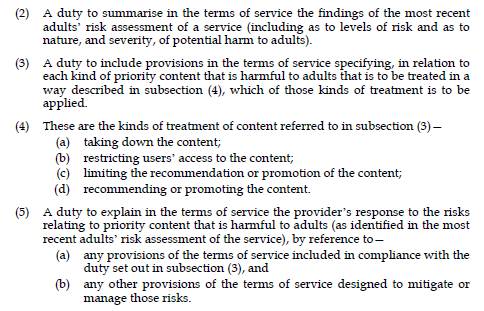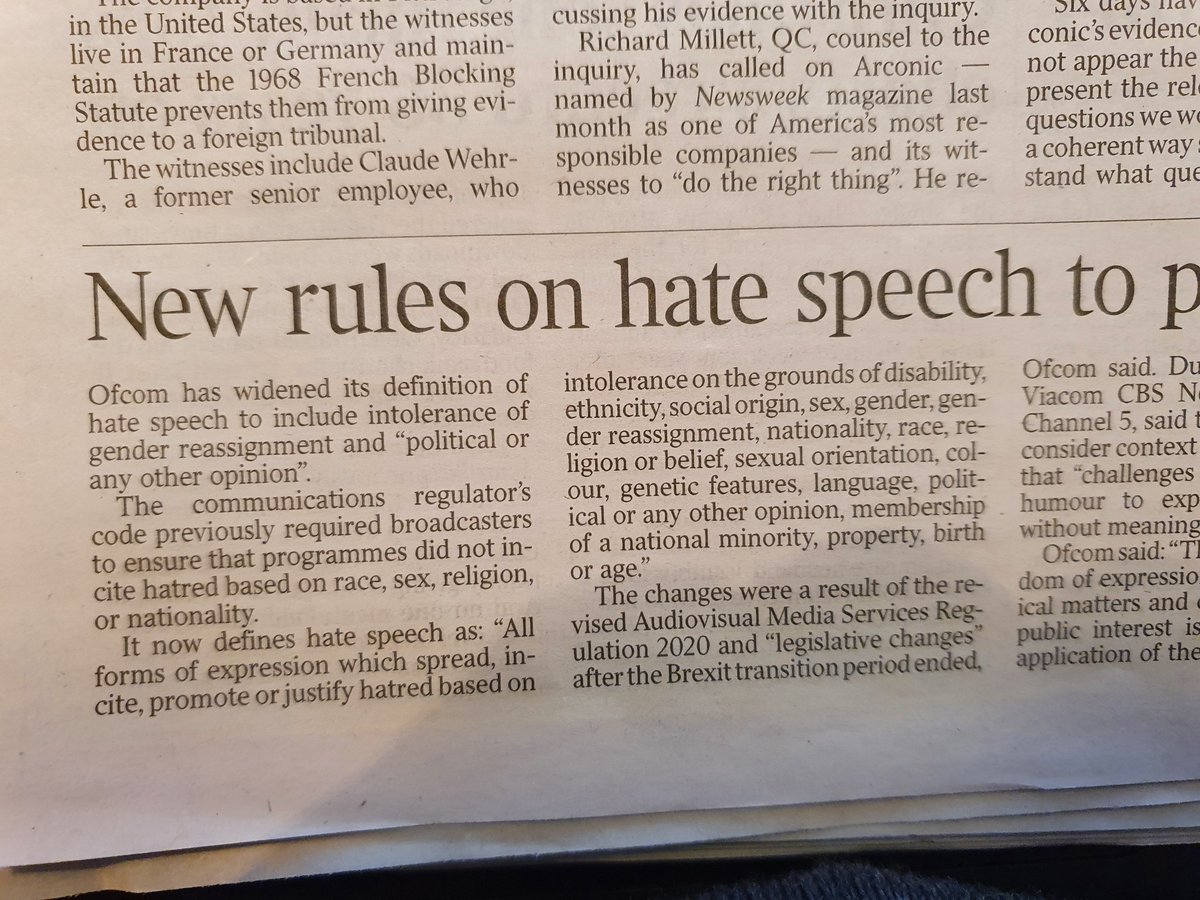
Here it is, as introduced in Parliament today. #OnlineSafetyBill bills.parliament.uk/bills/3137/pub…
All 225 pages of it, plus 126 pages of Explanatory Notes.
I may be wrong, but it looks as if 'reasonable grounds to believe' has disappeared from the definition of illegality. Can't immediately find it anywhere else, but this will take a lot of checking.
The Person of Ordinary Sensibilities appears to have been given a decent burial.
The new harm-based communications offence is substantially as recommended by the Law Commission, with all its attendant problems. 

"Reasonably considers" has found its way into s.9(6) in relation to T&Cs, but I'm not sure how (if at all) that relates to the safety duties in S.9(3).
As discussed here. cyberleagle.com/2021/11/licenc…
For when you've finished reading the Bill, here is the government's Response to the Joint Scrutiny Committee's Report. assets.publishing.service.gov.uk/government/upl…
Massive increase in Ofcom powers to require proactive monitoring by use of technology (S.116). Previously prohibited except for terrorism and CSEA. 

Article 15 ECD well and truly consigned to the dustbin. cyberleagle.com/2017/05/time-t…
Never thought I'd have to dig this out of the archives. For real, this time. cyberleagle.com/2013/06/the-go…
There is a long list of priority criminal offences in Schedule 7 (to which the proactive obligations in S.9(3)(a) to (c) would apply). Assisting suicide, threats to kill, public order offences, harassment, drugs and psychoactive substances, firearms and other weapons, ... 1/2
... assisting illegal immigration, causing, inciting or controlling prostitution for gain, sexual images offences, money laundering, fraud, financial services offences, plus attempts, conspiracy, aiding, abetting, counselling or procuring any of the above. 2/2
As it happens, I did a case study a while back on what a platform would have to do to assess whether user content amounted to a harassment offence. Based on the draft Bill, so now out of date in several respects, but the fundamentals haven't changed. cyberleagle.com/2021/11/the-dr…
Differs from CSEA and terrorism in that it’s enforcement predicated on breach rather than a self-standing power, but proactive monitoring nonetheless.
But the Person of Ordinary Sensibilities was apparently still alive on 31 January (date of the new Impact Assessment). 

• • •
Missing some Tweet in this thread? You can try to
force a refresh









